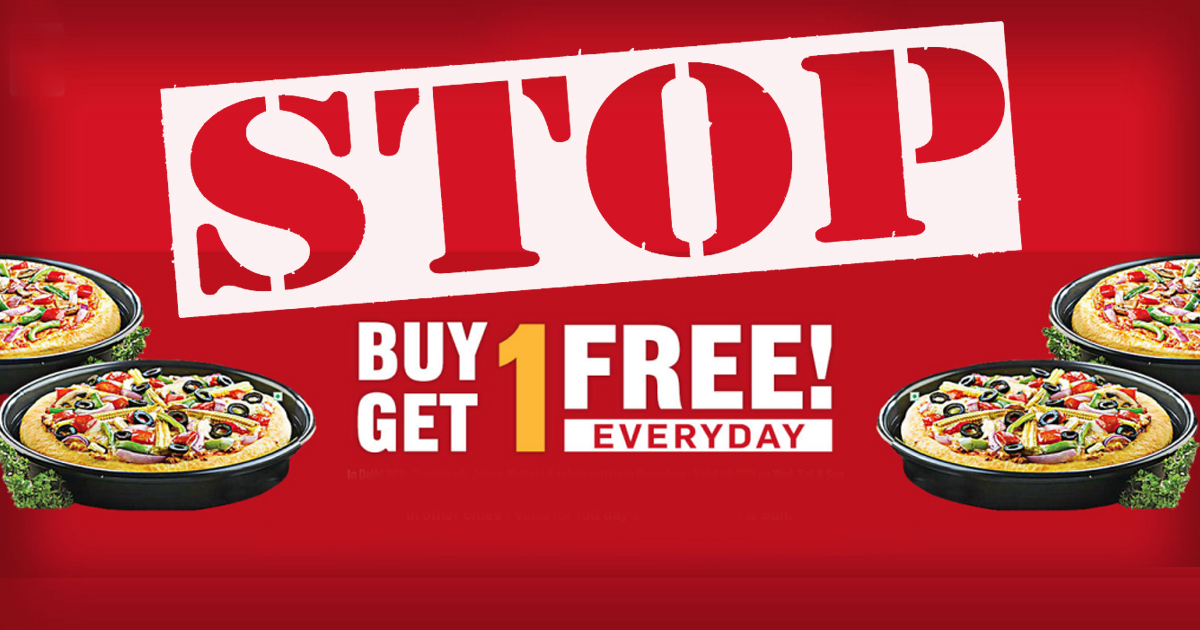Food Chain Companies such as Dominos and Pizza Hut who offer freebies to consumers will suffer huge losses due to the implementation of GST as they are required to pay taxes on free items as well. Packaged products and food service provider companies have stopped their ‘buy-one-get-one-free offers‘ immediately after the implementation of Goods and Services Tax (GST) from 1st July.
Under the GST Regime, companies will have to pay an additional tax on anything they provide ‘free’ to consumers as well as they are not entitled to avail input tax credit benefit on such deals. Now, companies are forced to adopt other strategies such as discounts and price-offs to attract customers.
Mayank Shah, Marketing Head of Biscuits Parle Products, said, “We are doing away with buy-one get-one-free offers and are switching to upfront discounting.” He further added, “This is causing disruption but it’s what is required under the goods and services tax.”
Managing Director of Godrej Consumer Products, Vivek Gambhir, said, “Given some of the tax implications under GST, our team is evaluating the optimal path forward and we will likely become more selective when giving products as promotional items.” By adding that, the companies will adopt different strategies to attract consumers such as price-offs, product giveaways and discounts.
The two renowned food chain stores – Jubilant Food Works and Yum Restaurants (Pizza hut owned) have stopped offering buy-one-get-one free schemes to their consumers. Subway Restaurants are also no longer providing any buy-one-get-one free products as a result of GST implementation.
Read Also: Are Restaurants Charging Correct GST Bills? Know and Save Money
Unnat Varma, Managing Director of Pizza Hut, said, “Under the GST fine print, every product sold in food services has to have a notional value. So we are doing away with our buy-one-get-one-free offers.” He further added, “We are currently running offers, for example, under which consumers can buy two pizzas and get discounts on the third.”
The companies which are supplying goods at free of cost will have to bear the additional taxes in the new indirect tax regime. It may also include the free items provided by pharmaceutical companies to doctors.
